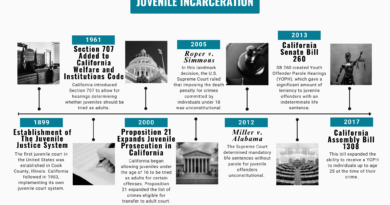Recent court decision on Proposition 57 impacts lifers

By now, many life-term individuals across the state of California have heard about changes to Proposition 57 and credits they have earned towards their release dates. What some people may not know is what’s true and what’s not, and how this affects their chances of going home.
The changes being talked about are a result of a lawsuit filed by a group called Criminal Justice Legal Foundation (CJLF). This group sued the California Department of Corrections and Rehabilitation (CDCR) and the Board of Parole Hearings (BPH). Claiming that CDCR was not authorized to change the penal code in terms of credits granted towards a person’s minimum eligible parole date, and that BPH was not authorized to release people on a date that had been advanced by those credits.
Sacramento County Superior Court Judge Jennifer K. Rockwell sided with CJLF and made three judgments in favor of the plaintiff. Judge Rockwell then elected to stay (put on hold) two parts of the judgment but let one go into effect while CDCR and BPH appeal the judgment.
The one part of the judgment that has gone into effect sent shockwaves through California prisons and devastated loved ones of those affected. Individuals who have been diligently programming and actively engaging in rehabilitative endeavors now have learned that the rehabilitative achievement credits (RAC) and milestone credits will not be applied towards their actual release date once they are found suitable.
To put it differently, CDCR has instructed each institution to apply RAC and milestone credits towards the date an individual actually has a hearing in front of the BPH. But, when the person is found suitable, those credits will be removed from the calculation and the person’s actual parole date will be determined.
At CCWF, the number of people affected by this ruling is relatively low at the moment but the impact has been devastating. That devastation will only increase while this case is being litigated in court. Individuals are hearing that they will have to remain in prison for a few additional months to more than five years after being found suitable for parole, depending on the actual length of time served.
The sad fact of the matter is that this case will likely take years to be settled and, absent an injunction or further stay by an appellate court or the California Supreme Court, individuals will continue to earn credits towards a board hearing but those credits will not apply to a parole date.
While none of this is good news or anything a lifer wants to hear, there is one area that many lifers may not have considered: the possibility they could transfer to a minimum custody facility once their parole grant is affirmed by the BPH and governor. Title 15 as well as the Department Operations Manual (DOM) allow for life term individuals to transfer to minimum custody facilities once the parole grant is affirmed provided they meet the criteria to be transferred. (See, e.g., Title 15 § 3375.2(a)(8); DOM 61010.11.5 and 62050.7.3.)
If a lifer is impacted by California Justice Legal Foundation v. California Department of Corrections, et al., and has additional time to serve, s/he may want to speak with their correctional counselor to explore whether a transfer to a different facility may be a better way to serve that time.



